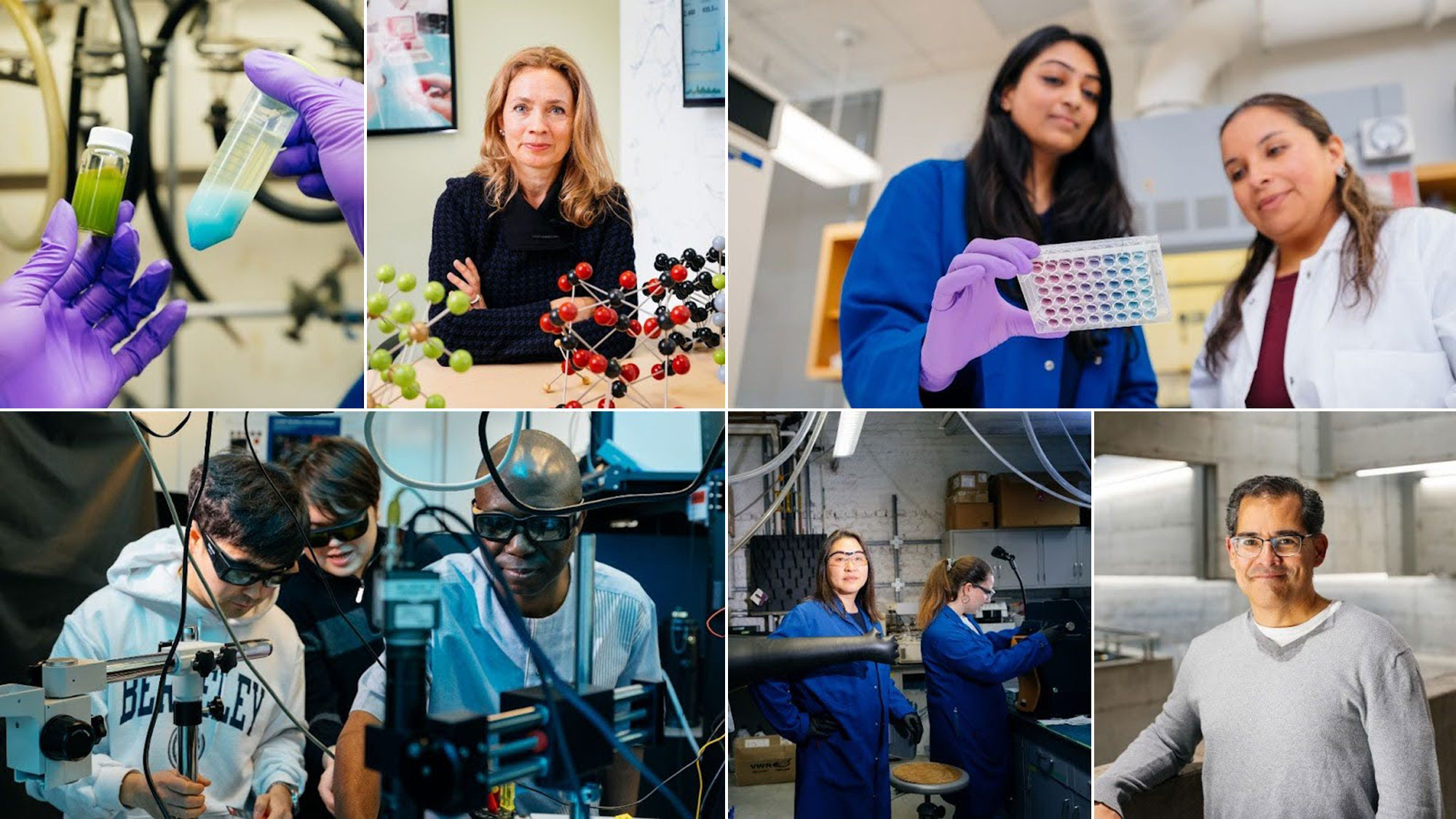Climate change has become a pervasive influence in nearly every facet of our lives. From the air we breathe to the food we eat and the vehicles we drive, the way we navigate the world impacts our environment, often in negative ways. UC Berkeley is a powerhouse for energy and climate research where faculty, postdocs, and students develop renewable and sustainable energy sources, advance new technologies to help curb energy demand, help lawmakers understand the implications of climate change, and formulate appropriate and timely policy responses. For researchers developing critical new technologies, having an entrepreneurial bent is almost as important as conducting successful experiments.
These faculty members represent a small portion of Berkeley’s ecosystem of climate innovators. They, along with many other colleagues, are driving discoveries from the lab to the marketplace, creating startup companies to fast-track the development and deployment of new and creative climate solutions.
Rebecca Abergel, an associate professor of nuclear engineering at Berkeley, leads the Heavy Element Chemistry group at Lawrence Berkeley National Laboratory. Her research focuses on mitigating the impact of exposure to heavy metals on the human body. Abergel is also the co-founder of HOPO Therapeutics, a health company focused on developing low-cost treatments for illnesses resulting from exposure to heavy metals like lead, cadmium, arsenic, and mercury. Her multidisciplinary research includes nuclear chemistry, photophysics, chemical biology, pharmacology, and molecular and cellular biology, aiming to understand the health effects of exposure to radioactive and heavy metals on biological systems.
Alexis Bell, an emeritus professor in chemical and biomolecular engineering, has dedicated over 50 years to understanding catalyst performance in chemical processes. His research contributes to environmental protection by synthesizing useful chemicals from biomass-derived compounds and developing fuels through solar-radiation processes. Bell also educates undergraduate students on the challenges of bringing alternative energy resources to the market and serves as an advisor to the Bakar ClimatEnginuity Hub.
John Dueber, a professor of bioengineering at Berkeley, focuses on controlling the behavior of living cells to develop efficient, environmentally friendly products and technologies. His lab explores metabolic pathways and directs flux to develop biofuels, specialty chemicals, and novel treatments for diseases. Dueber’s entrepreneurial endeavors include companies like huue, which is changing the way blue jeans are dyed using biotechnology, and Novome Biotechnologies, which enhances the microbial ecosystem in the human gut for therapeutic purposes.
Kristin Persson, a professor in material sciences and engineering, directs the Materials Project at Berkeley, which computes the properties of inorganic materials to expedite the lab-to-market timeframes for energy-related technologies like solar batteries. Persson’s work aims to reduce trial and error in material synthesis, advancing critical research in energy technologies.
David Schaffer, a professor in chemical and biomolecular engineering, bioengineering, and molecular and cell biology, applies engineering principles to optimize gene and stem cell therapies. As the director of the Bakar Bioenginuity Hub, Schaffer supports startups focused on climate technology, such as Umaro, Perlumi, and Verinomics, which aim to revolutionize industries impacting health and climate.
Ting Xu, a professor in chemistry and material sciences and engineering, researches polymers and biomaterials to create functional materials that reduce plastic waste. Through Intropic Materials, Xu embeds natural enzymes in plastics to enable self-degradation, promoting a bio-based economy for sustainability.
Omar Yaghi, a chemistry professor at Berkeley, pioneers reticular chemistry to use metal-organic frameworks for sustainable solutions like water harvesting. Yaghi’s research in artificial photosynthesis aims to provide cleaner air, water, and energy to the world, addressing the challenges of climate change.
Peidong Yang, a chemistry professor at Berkeley, creates biohybrid systems that mimic photosynthesis to produce clean and renewable liquid fuel. His research in artificial photosynthesis aims to provide efficient energy resources for a changing world, inspired by the natural processes of plants.
These innovative researchers at UC Berkeley are at the forefront of developing solutions to combat climate change and promote sustainability. Their interdisciplinary work spans from understanding heavy metal exposure to creating bio-based materials and advancing renewable energy technologies. Through their research, entrepreneurship, and commitment to addressing global challenges, they are paving the way for a more sustainable future.




















